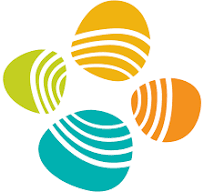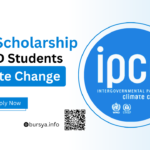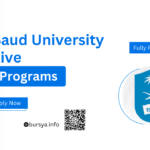Organization Overview
King Abdullah University of Science and Technology (KAUST) is a private research university in Thuwal, Saudi Arabia, established in 2009 and named after King Abdullah bin Abdulaziz. It is the first mixed-gender university campus in the Kingdom and was founded with a $10 billion endowment to promote scientific innovation and development.
KAUST quickly rose to global recognition for its high-impact research. It ranked among the world’s fastest-growing research institutions and was the top university in the Times Higher Education Arab University Rankings 2023. Since September 2024, Sir Edward Byrne, a renowned neuroscientist, has served as the university’s fourth president.
History and Campus
A team led by Ali Al-Naimi and Nadhmi Al-Nasr with input from global advisors developed the University. Its 36 sq km campus, located on the Red Sea, includes a marine sanctuary, museum, and advanced facilities like Shaheen—once Asia’s fastest supercomputer. KAUST is the world’s largest LEED Platinum-certified campus and was named one of the AIA’s Top Ten Green Projects in 2010.
Research and Academics
KAUST focuses on five major areas: food, health, water, energy, environment, and digital technologies. Research projects are spanning three academic divisions:
- Biological and Environmental Science and Engineering (BESE): Focuses on marine science, functional biology, genomics, and environmental systems.
- Computer, Electrical, and Mathematical Sciences and Engineering (CEMSE): Covers AI, big data, electrical engineering, and applied mathematics.
- Physical Sciences and Engineering (PSE): Encompasses energy systems, materials science, water purification, and CO₂ sequestration.
Centers of Excellence (CoEs)
In 2024, KAUST launched four new CoEs targeting Saudi Arabia’s research and innovation priorities:
- Renewable Energy and Storage Technologies: Led by Professors Husam Alshareef and Zhiping Lai, focusing on sustainable energy solutions.
- Smart Health: Co-chaired by Professors Imed Gallouzi and Xin Gao, advancing digital health and precision medicine.
- Generative AI: Led by Professors Bernard Ghanem and Jürgen Schmidhuber, developing general-purpose AI models for diverse sectors.
- Sustainable Food Security: Led by Professor Mark Tester with support from Professors Peiying Hong and Brande Wulff, focusing on resilient agricultural innovations
KAUST continues to drive innovation, global collaboration, and sustainable development in line with Saudi Arabia’s Vision 2030.
Further details and information are available on the official website. Review more organizations and institutions on our website.




